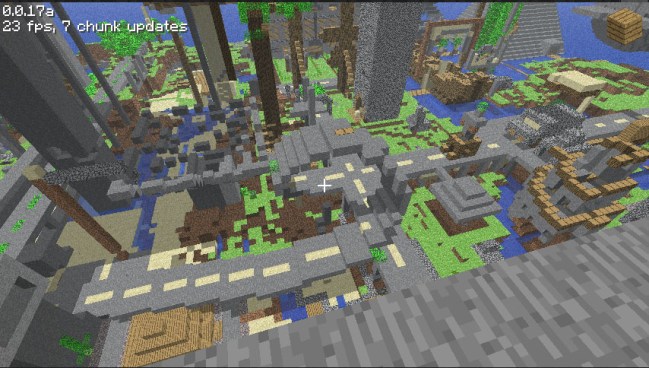
Minecraft is perhaps the most inexplicably popular game out there right now. You can’t play it on your consoles or mobile devices, only PC. It looks like an NES-era game. It’s still in its beta phase. Yet despite all of this, it has seen more than one million sales, with more signing on every day.
It’s an impressive achievement, one that Game Developer magazine takes a closer look at in a new interview with creator Markus Persson, which is excerpted now on industry news site Gamasutra. The Minecraft creator says that he leaned heavily on community feedback during the development process, maintaining a public presence on discussion forums and engaging in the dialogue in order to better tailor the user experience.
“From the start, I was very open about Minecraft’s development. I talked about it on forums, primarily those on TIGSource, and told people what I was doing and where I wanted to take the game,” he said. “Discussing with the players and listening to suggestions, I learned a lot about how the game could be played and what directions were most interesting to others. Usually, people played it in completely different ways than I did. For example, when I added more complex game rules to the basic game engine, it turned out a lot of people really liked the free building from the engine test, so I kept it around and called it ‘creative mode.'”
The game’s “creative mode” has turned out to be one of the most popular features, with new user-created videos popping up every day highlighting the bizarre and often elaborate constructions that come from the minds of the game’s fanbase. Persson recalls a moment when he came across a fan mod that turned Minecraft into a rudimentary version of Valve Software’s first-person puzzler Portal using hacked-in textures, which spurred him to add in official support for texture packs.
Persson also speaks a bit to Minecraft‘s success, a combination of fortunate timing and good, old-fashioned luck. “If you’re not making a sequel, it’s basically impossible to have any idea how well a game will do, especially if you don’t have many years of experience like most publishers. I’ve tried to analyze why Minecraft has sold so well several times, and I come to slightly different conclusions each time,” he explained. “However, I can’t escape the fact that a large factor is that I just happened to make the right game at the right time just as the audience was starting to warm up to the idea of paying for indie games.”
There’s more over at Gamasutra, so Minecraft fans and info-seekers alike should make sure to check it out.
Editors' Recommendations
- How to breed villagers in Minecraft
- How to play Minecraft on a Chromebook
- The best Minecraft mods
- How to find and use echo shards in Minecraft
- How to make an iron golem in Minecraft

